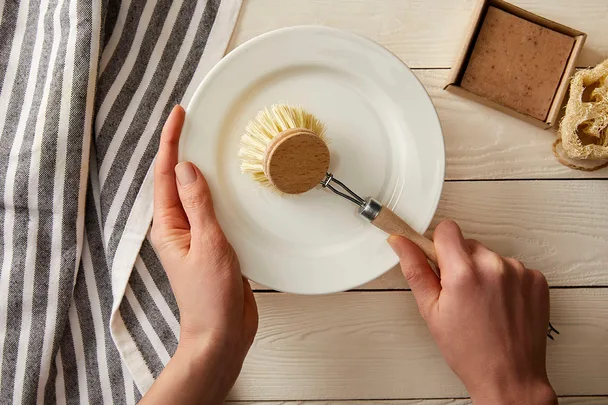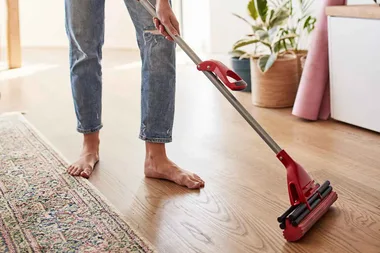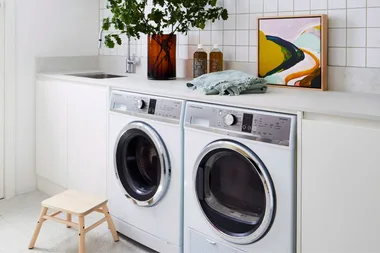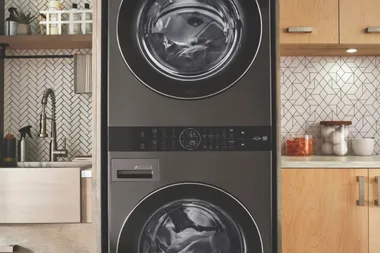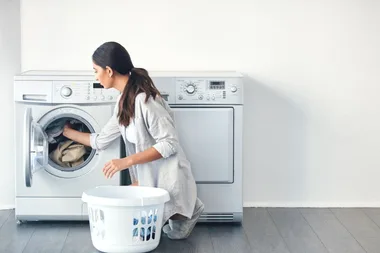It’s your kitchen cleaning best friend, you catch up multiple times a week (sometimes each day!) but have you ever given a second thought about what your scrubbing brush is doing to you. Technically speaking dish brushes are a more hygienic option than dishcloths and sponges. Why you ask? Firstly, the bristles don’t leave many places for germs to hide and secondly, they won’t harbor bacteria or any funky smells if you leave them to dry completely overnight. But there’s still more to them than meets the eye.
How often should you clean your dish brush?
Your kitchen brush needs to be cleaned regularly and rigorously in order to stop the growth of bacteria within its many fibres. During the course of each day, it will pick up and redistribute germs and bacteria to each of your pots, pans and plates so make sure you clean your scrubbing brush at least once a week.
To keep your brush sparkly clean and germ-free plonk the head in a cup of white vinegar and a drop of Castile dish soap for one hour. Leave the brush overnight and ta-da you’re done!
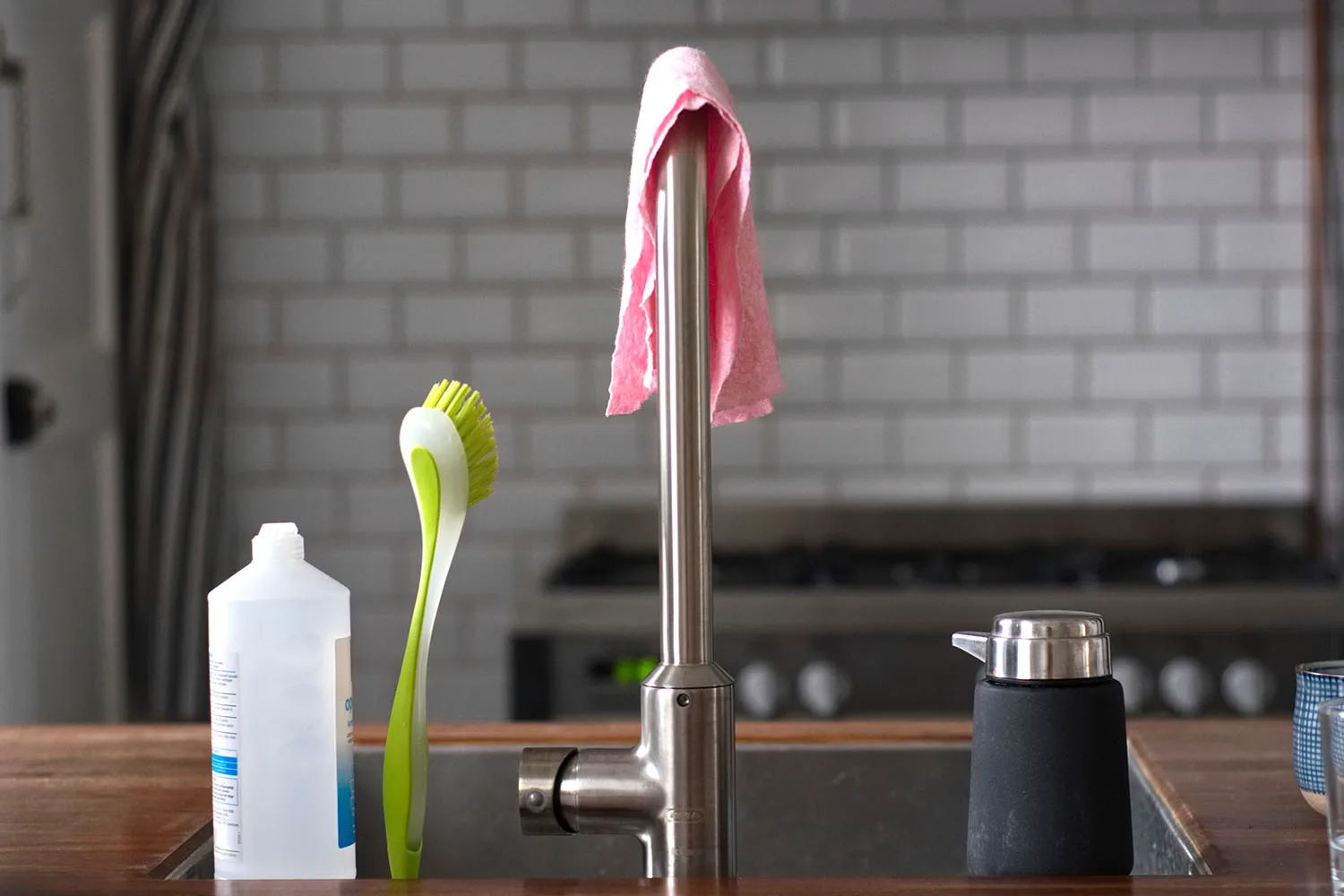
How often should you replace your dish brush?
Like many things, there isn’t a one size fits all approach when it comes to replacing your brush. It depends on what you’re cooking, how smelly and grimy it is, how often you’re cooking, and if you’re regularly sanitising and cleaning the kitchen brush. Opt for a brush that has a removable brush head to cut down on waste.
What’s the best brush on the market?
Steer clear of brushes that are made from plastic as they’ll be rough on your pans and break off tiny microplastics with every use. Look for long term solutions that will go the distance. Yeseco’s kitchen cleaning range is not only pretty, it’s 100% compostable so you can worry less about the footprint you’re leaving behind.
You might also like:
This is how often you should be changing your kitchen sponge
5 cleaning mistakes everybody makes
Looking for some crazy cleaning tips that really work? Watch the video below.
